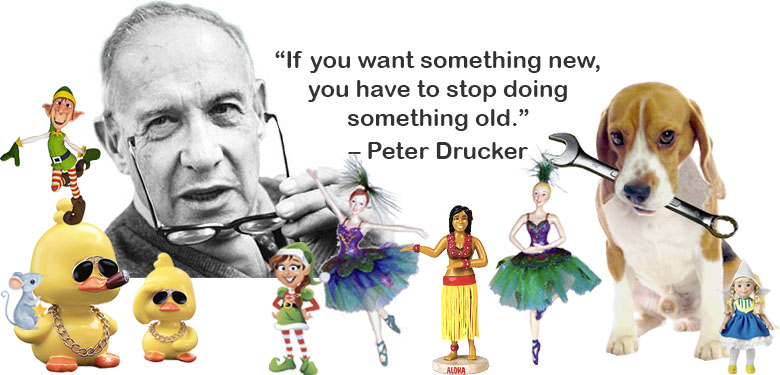
Jerry’s 53% Idea
A successful mechanic shop brings in about $500,000 a year. But whether or not the shop owner makes any profit on that $500,000 isn’t determined by how good they are at repairing cars, but by how good they are at running a business.
And even those shop owners who are good at running a business might not be good at converting telephone inquiries into customers.
You realize I’m not just talking about auto repair shops, right? I’m talking about every category of business in America.
At this moment, I’m talking to you about yours.
- Are you good at your job?
(Are your customers impressed?) - Are you good at running a business?
(Pricing, recruiting, work-flow management, inventory management, vendor relations, employee retention, customer retention, payroll management, etc.) - Are you good at generating inquiries?
(Advertising, brand-building, sales activation, customer word-of-mouth and online reviews.) - Are you good at turning inquiries into customers?
(Close rate, conversion.)
Now, back to Jerry:
- Jerry was good at his job.
So good, in fact, that his reputation allowed him to bring in 12 times as much business as the average “successful” auto repair shop. Jerry wasn’t bringing in $500,000 a year. He was bringing in $500,000 a month. - Jerry was good at running a business.
He and his wife traveled and enjoy life at a much higher level than most of us. - Jerry was good at generating inquiries, mostly because his auto repair shop made customers happy for a lot of years, and happy customers tend to multiply.
- But Jerry was only average at turning telephone inquiries into customers. Still, he was doing 12 times the sales volume of the average “successful” mechanic shop in America.
Jerry and his wife are often at Wizard Academy.
Jerry was paying attention when I said, “Bad marketing is about you, your company, your product, your service, how many years you have been in business and how many awards you have won. Good marketing is about the customer, and how your product or service can change the private little world they live in.”
After contemplating those words, Jerry and his wife realized that how they respond to telephone inquiries is a form of marketing. Specifically, it is the kind of marketing that can improve the percentage of incoming phone calls that become customers.
I encouraged Jerry and his wife to experiment. I said, “Try something new. Give it time to work, but if it doesn’t work, try something else that is new.”
Jerry’s second experiment caused his business revenues to jump 53% above the previous year, month after month.
Jerry’s mechanic shop no longer does $6,000,000 a year. He now has a $9,180,000 mechanic shop.
I know what you’re thinking. You want to know how Jerry and his wife lit the fuse on the rocket that put their business into orbit, am I right?
Okay, I’ll tell you.
Jerry’s wife said, “Every incoming call begins with the caller saying, “Can you,” “Do you,” or “Will you.”
“Give me some examples,” I asked.
She said, “Can you repair the transmission on a 2018 Mercedes-Benz E400?”
Our answer is, “Yes we can. And if you’d like to bring it in, we’ll take a look at it right now.”
“Do you work on Volkswagens?”
“Yes we do. And if you’d like to bring it in, we’ll take a look at it right now.”
“Will you take a look at my Porsche 718 Cayman? It dies every time I make a sharp left turn.”
“Yes, we will. And if you’d like to bring it in, we’ll take a look at it right now.”
Do you see what Jerry and his wife are NOT doing? They’re not probing for more information, educating the customer, or explaining how busy they are.
What they ARE doing is listening to the customer’s problem and saying, “Yes, we can solve that problem for you.” And then they tell the customer the happy news that they are willing to take a look at it immediately.
Let’s look at the math of that transaction:
The customer (1.) has a problem and (2.) is frustrated about it.
Jerry and his wife (1.) take away the problem and (2.) remove the frustration.
It’s never about you.
It’s always about the customer.
You can make it more complicated than that if you want to.
But I wouldn’t suggest it.
Roy H. Williams
PS – I didn’t mention the name of Jerry’s wife because that would make it too easy to find them. And they are far too busy saying “Yes” to customers to have time to chat with 500 people who would like to ask them for further details about their method. Does it surprise you that those calls happen?